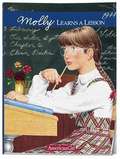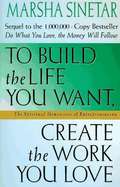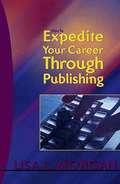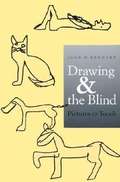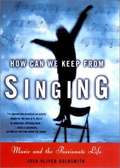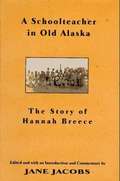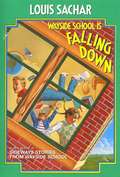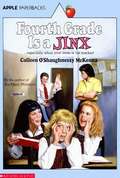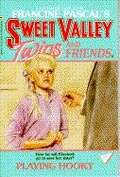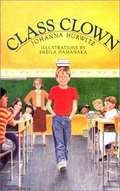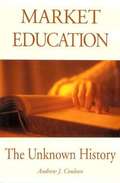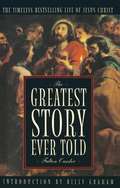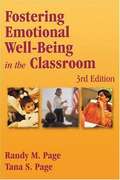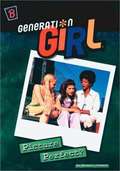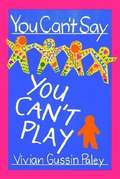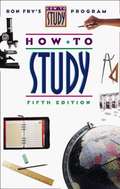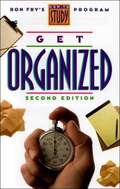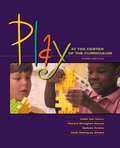- Table View
- List View
Molly Learns A Lesson: A School Story (American Girls #2)
by Valerie TrippFrom the book: "When the teacher announces the Lend-a-Hand Contest to help the war effort, Molly is determined that the third grade girls will plan the winning project. Instead, they choose an idea that Molly knows will never work out. So she talks two friends into planning their own project and keeping it a secret from the rest of the girls in the class. But the secret project turns out to be harder than Molly thought it would be. She begins to worry that it might not win after all and decides to spy on the other girls to see how they are doing. When Molly and her friends get caught peeking in a window, they learn some important lessons."
¡La Señorita Nelson Ha Desaparecido!
by Harry AllardCuando la Señorita Nelson desaparece viene una nueva sustituta mucho más estricta a la clase. When Miss Nelson disappears, the children are faced with a very strict substitute.
Participatory Action Research
by William Foote WhyteThis text provides perspectives on the practice and evolution of participatory action research.
To Build the Life You Want, Create the Work You Love
by Marsha SinetarA guide for finding the work that you love.
How to Expedite Your Career Through Publishing
by Lisa L. MorganThere are a lot of books dedicated to career building and a lot of books dedicated to writing. Some will teach you how to write better resumes, business letters, or business plans. Yet, none really focus on how to build a career through publishing. That's what this book is all about. Clear examples; lots of resources.
Drawing and the Blind: Pictures to Touch
by John Fitzgerald KennedyThis book overturns the conventional wisdom that people who have been totally blind since birth or early childhood have no interest in or capacity to understand tactual drawings. Kennedy and his colleagues conducted a series of studies with blind children and adults in Toronto, Haiti, and Arizona, and assessed the drawings which their subjects produced. They found that blind people had a seemingly instinctive grasp of two-dimensional representation even though they had had no prior exposure to it. The book is scholarly but highly readable.
Old Testament Survey (Part 2: Job--Malachi)
by Gary B. SmithThis is the second book in a series of three Bible study books. Clearly written. Thought-provoking, as well as review questions.
Luvvy and the Girls
by Natalie Savage CarlsonLuvvy has at last gotten her wish, and is off to the convent school with her older half-sisters. But she soon finds that things are not as she expected, and she wishes for the security of home and family. When she gets over her shyness and begins to know other girls besides her sisters, Luvvy becomes much happier, and even finds a best friend.
How Can We Keep from Singing: Music and the Passionate Life
by Joan Oliver GoldsmithThe author has been a member of the Minneapolis/St. Paul Symphony Chorus for eight years, and has a lifelong love of choral singing. This book combines memoir with far-ranging reflections on singing, friendship, the corporate world, romantic love, and much more. Goldsmith writes beautifully and her words capture the beauty and exhilaration of singing, which she considers a spiritual experience.
A Schoolteacher in Old Alaska: The Story of Hannah Breece
by Jane Jacobs Hannah BreeceHannah Breece braved the Alaskan wilderness nearly a century ago to teach native children how to become Americans. A proud and fiercely independent woman, she struggled against great odds to establish federally sponsored schools in remote settlements. This is*her own story of her many adventures on the Alaskan frontier. Breece compiled a draft of her experiences from her diaries and letters, but never completed the project. Before she died, she entrusted the manuscript to her great-niece Jane Jacobs, and this delightful book is the result. " Hannah Breece was a paradox, as'Jane Jacobs writes in her foreword. A woman ahead of her time, she set off alone for the frontier at a time when few women worked outside their homes. But she was also deeply devoted to the conven' tions of her late-nineteenth-century world: A firm prohibitionist and a devout Christian, she felt a strong moral commitment to bringing native children into the so-called civilized world. On her own in the wilderness, Breece went from adventure to adventure as she struggled to maintain the various schools. Her world includes many eccentric characters: gold prospectors and fur traders, tribal chiefs and native youngsters, prim dowagers and Russian priests. Jane Jacobs visited the communities her great aunt described to fill in some of the gaps in her story. Her original research complements Hannah Breece's story to give us a vivid picture of old Alaska, of the infant settlements of Juneau, Kodiak, Seward and Fairbanks, and of the amazing woman who conquered its frozen wilderness, loved its children and, for nearly fifteen years, made it her home.
Wayside School is Falling Down
by Louis SacharA collection of wacky stories about the 29 kids in Mrs. Jewls's class at the crazy and adventurous Wayside School.
Fourth Grade is a Jinx
by Colleen O'Shaughnessy MckennaCollette thought 4th grade was going to be fun, but that was before the teacher had an accident. Now the substitute teacher is her mother!
We Interrupt This Semester for an Important Bulletin
by Ellen ConfordCarrie must prevent Prudie from intruding into the newspaper office and stealing her former boyfriend Chip.
Playing Hooky (Sweet Valley Twins #20)
by Francine Pascal Jamie SuzanneJessica skips a class to meet a soap opera star and is no longer allowed to play for the basketball playoffs. Her twin Elizabeth must now save the day, and the game.
Haunted Schools: True Ghost Stories
by Allan ZulloNine stories about ghosts and phantoms found haunting schools.
Class Clown
by Johanna HurwitzLucas Cott desires to be a good student while his classmates want him to be funny as the class clown!
Market Education: The Unknown History (Studies in Social Philosophy & Policy, No. #21)
by Andrew J. CoulsonCoulson concludes that free educational markets have consistently done a better job of serving the public's needs than state-run school systems have. (from the publisher)
The Greatest Story Ever Told
by Fulton OurslerFulton Oursler's narrative of the life of Jesus Christ.
Fostering Emotional Well-being in the Classroom
by Randy M. Page Tana S. Page"the text addresses the issues facing today's school-age youth, [and]it...[provides]specific tools and skills that can help them [parents and teachers] make a difference.
Picture Perfect? (Generation Girl, #5)
by Melanie StewartAlways calm and cool, Lara has a great life. But her parents are fighting more than usual. It's a good thing she has friends to turn to when life gets complicated. Or does she?
The Art and Science of Teaching Orientation and Mobility to Persons with Visual Impairments
by William H. JacobsonTeaching orientation, mobility and space perception to blind people.
You Can't Say You Can't Play
by Vivian Gussin PaleyWho of us cannot remember the pain and humiliation of being rejected by our classmates? However thick-skinned or immune to such assaults we may become as adults, the memory of those early exclusions is as palpable to each of us today as it is common to human experience. We remember the uncertainty of separating from our home and entering school as strangers and, more than the relief of making friends, we recall the cruel moments of our own isolation as well as those children we knew were destined to remain strangers.<P> In this book Vivian Paley employs a unique strategy to probe the moral dimensions of the classroom. She departs from her previous work by extending her analysis to children through the fifth grade, all the while weaving remarkable fairy tale into her narrative description. Paley introduces a new rule-"You can't say you can't play"-to her kindergarten classroom and solicits the opinions of older children regarding the fairness of such a rule. We hear from those who are rejected as well as those who do the rejecting. One child, objecting to the rule, says, "It will be fairer, but how are we going to have any fun?" Another child defends the principle of classroom bosses as a more benign way of excluding the unwanted.<P> In a brilliant twist, Faley mixes fantasy and reality, and introduces a new voice into the debate: Magpie, a magical bird, who brings lonely people to a place where a full share of the sun is rightfully theirs. Myth and morality begin to proclaim the same message and the schoolhouse will be the crucible in which the new order is tried. A struggle ensues and even the Magpie stories cannot avoid the scrutiny of this merciless pack of social philosophers who will not be easily caught in a morality tale.<P> You Can't Say You Can't Play speaks to some of our most deeply held beliefs. Is exclusivity part of human nature? Can we legislate fairness and still nurture creativity and individuality? Can children be freed from the habit of rejection? These are some of the questions. The answers are to be found in the words of Paley's schoolchildren and in the wisdom of their teacher who respectfully listens to them.
How to Study (5th edition)
by Ron FryHow to Study has gained immense popularity among students of all ages for one simple reason: It works. Now updated and expanded for the information age, this "A-plus" read includes how to create a work environment, excel in class, use the library, do research online, and much more.
Get Organized: Second Edition
by Ron FryGet Organized can help you accomplish more in less time. The book presents simple time-management techniques that can make a big difference in your effectiveness. By deciding what is important and what isn't...by avoiding time traps...and by getting in the habit of developing to-do lists, daily schedules, monthly calendars, and project boards, readers learn how to make the most of their study time. They'll be studying smarter, not harder.
Play at the Center of the Curriculum
by Judith Van Hoorn Patricia Monighan Nourot Barbara Scales Keith Rodriquez AlwardThis book for future early childhood educators offers all of the background needed to plan and implement a developmentally appropriate, play-centered curriculum for children ages 3 to 8.
